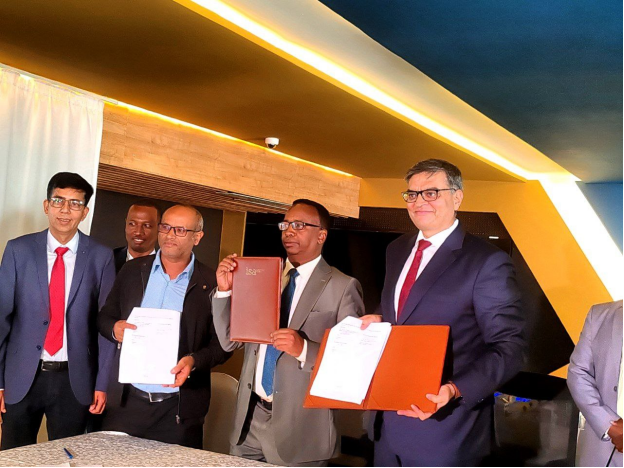Generation

Ethiopia signs 400 MW solar energy projects to advance clean power

Ethiopia has signed agreements to develop 400 megawatts (MW) of solar power capacity in partnership with the International Solar Alliance (ISA), marking a major step in diversifying the country’s energy sources and advancing its national and global decarbonization agenda.
The agreements include three major solar projects, a Country Partnership Framework, and a 100-kilowatt peak (kWp) solar power project in Warsa Village, Central Ethiopia. The projects will be implemented over the next five years in collaboration with ISA and other partner organizations.
Speaking at the signing ceremony, Water and Energy State Minister Eng. Sultan Wali said the initiatives will accelerate Ethiopia’s energy transition, expand renewable energy investment opportunities, and support agricultural productivity.
“We cannot electrify every village from the national grid due to capacity limitations and scattered settlements in mountainous areas,” Sultan explained. “By replacing fuel-based energy with solar power, we will reduce fuel consumption, support irrigation-based agriculture, and improve food security without relying solely on rain-fed farming.”
The State Minister also inaugurated Ethiopia’s first grid-connected, bi- directional smart meter solar project, a solar rooftop car park funded by MoWE and ISA. This pilot initiative is expected to benefit public facilities and selected buildings, showcasing the potential of decentralized solar solutions.
Sultan underlined that the solar projects will play a significant role in Ethiopia’s decarbonization efforts, adding that ISA which Ethiopia joined in 2019 and now counts 124 member countries has been actively supporting renewable energy development through technical and financial partnerships.
ISA Director General Ashish Khanna said the partnership aims to ensure African communities benefit from affordable, green energy solutions.
“In rural Africa, using diesel pumps can be four times more expensive than solar-powered alternatives,” Ashish noted. “Our focus is to promote agricultural transformation through solarization, backed by policy, innovation, and local financing. We want to build an ecosystem where young people and women feel empowered by the opportunities created through solar power, irrigation pumps, and related value-added solutions.”
The projects are expected to not only expand Ethiopia’s renewable energy portfolio but also create green jobs, strengthen climate resilience, and accelerate agricultural modernization in rural communities.












